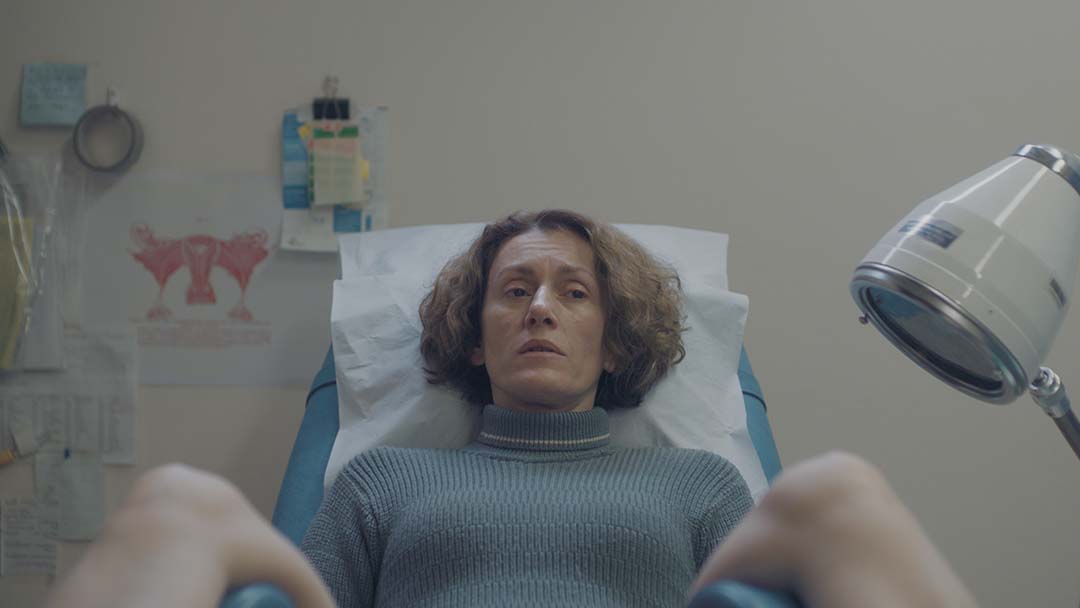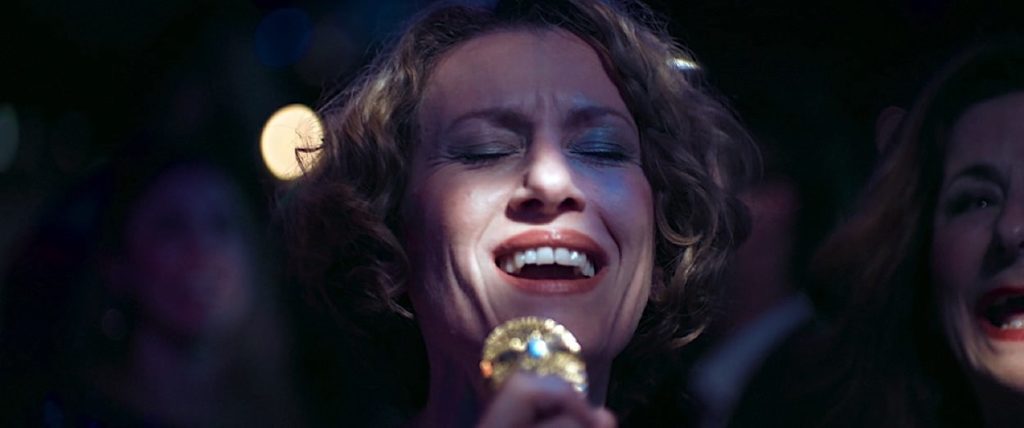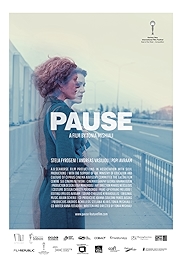At the Raindance film festival, London, UK, 27 October–6 November 2021
When is she going to crack? It’s the question asked by Tonia Mishiali’s feature debut, Pause (aka Paúse), and then answered in a series of gotchas.
Pause as in Menopause, the film’s working title, and in an opening scene that’s more amusing to watch than it would be to experience, middle-aged Greek woman Elpida (Stella Fyrogeni) is being examined in gynaecological stirrups after which she’s told that she’s going through the menopause. The male doctor runs through a list of what Elpida can expect – night sweats, body odour, weight gain, allergies, bleeding, osteoporosis – a list that goes on so comically long that only madness and death seem to be missing.
Elpida reacts with a deadpan nothing, a sort of “the shit I deal with” resignation, and heads off home, where Mishiali’s film lays out in painstaking detail exactly the sort of shit she deals with day in, day out, skivvying for her entirely unappreciative husband, this being Cyprus where the patriarchy still has a strong grip, or at least it does in this household.
Mishiali repeats the cycle often enough that we get it. Elpida shops, she cooks, she sits opposite Costas (Andreas Vasileou) night after night as he, head down, not talking, scoops food into his maw, then settles down for an evening watching the TV shows he wants to watch.
It’s shot like a Greek Weird Wave movie (by DP Yorgos Rahmatoulin), dead flat, little in the way of sun, the colours leached away, and Fyrogeni plays Elpida (the name translates as Hope, another of the film’s little jokes) like a posh paint chart of muted tones and different matte finishes – 50 shades of grey despair.
Maybe he’ll die, Elpida’s friend Eleftheria (Popi Avraam) says one day, meaning Costas. Or maybe you should feed him more fatty food until his arteries give out. Eleftheria is the more modern woman, given to cosmetic surgery, free in the way Elpida is not because her own husband is dead – and she exults in the memory of his death. In the film’s only moment of lightness, we get a hint of the Elpida of yore as she and Eleftheria get glammed up, go to a bar and karaoke a song together. It’s not I Want to Break Free or I Will Survive but it could be.
Carefully, amusingly, Mishiali keeps offering us moments where the strong-featured but cowed Elpida finally expresses herself – a sexual reverie here, a shock seizing control of her life there – only to reveal that these are fantasies Elpida is having, and that the reality of Elpida’s life continues to be a flatlining existence with Costas, who looks like he’s upping the patriarchal ante, using lack of money and impending old age to restrict Elpida’s orbit even further by selling her car.
Mishiali and co-writer Anna Fotiadou keep up the fantasy drop-ins almost to the final bell, and do it so well that it works every time. Of course we want it to work. We’re on Elpida’s side, and Vasileou’s selfless performance as the boorish, unthinking and casually rather than wilfully horrible Costas really helps to keep us there.
Subtitle-o-phobes, this is one for you. It’s in Greek, of course, but there’s so little dialogue, because Elpida’s life is so remarkably constrained, that there’s very little to read.
It’s an artfully fashioned film, a gem, or anti-gem really, with all the facets cut to repel the light. The performances, the lighting, the drab interiors, even Elpida’s hair – the roots showing through – all tell the same story. Bracket it with the Greek Weird Wave, if you fancy, but it is less overtly weird than most, too everyday, though with just enough of the fantasy element in there to keep it bubbling.
© Steve Morrissey 2021


